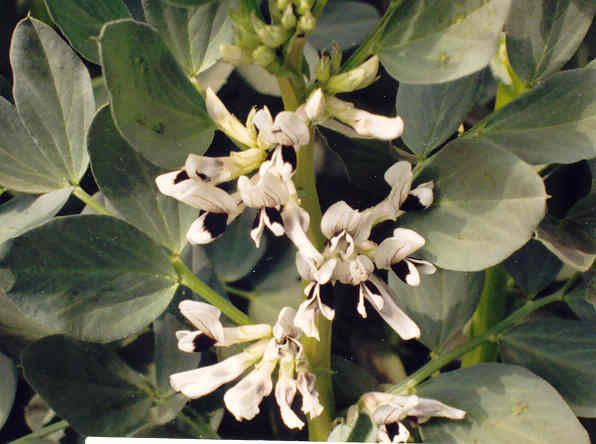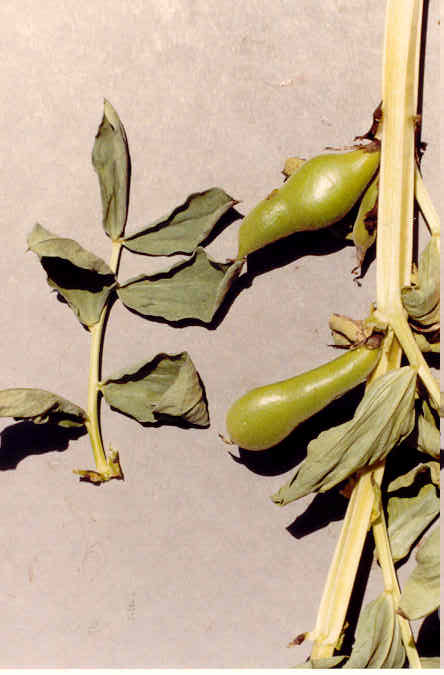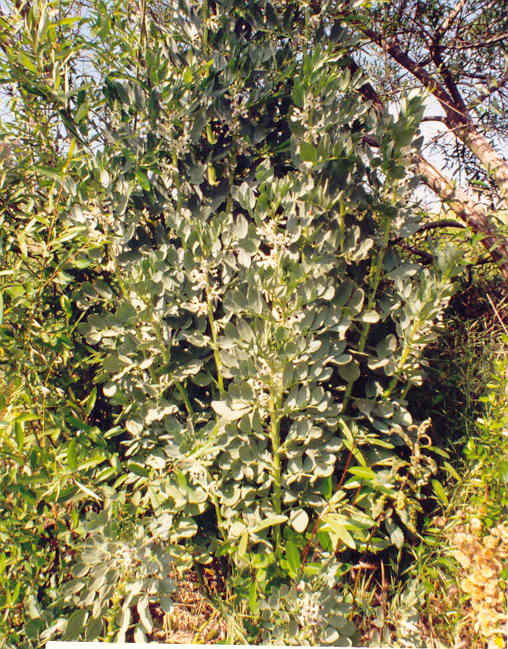
Vicia faba L.
 |
Vicia faba L.
Fabaceae (Pea Family)Old WorldHorse-BeanBroad-Bean |
March Photo
Plant Characteristics:
Erect annual, glabrous, 1-2 m. high; stipules half-cordate, mostly
entire; lfts. 2-3 pairs, ovate to elliptic, 4-10 cm. long, obtuse to acute;
tendril 0; stipules toothed or cut; fls. 2-6, crowded, 2-3 cm. long, subsessile,
axillary, dull white with a large purple spot on the wings; pods 8-12 cm. long,
1-2 cm. wide, often narrowed between seeds, 2-5 seeded, the seeds flat.
Habitat:
Grown widely in Calif. and escaping.
Bloom period not listed in Munz, my photos were taken March to May.
Name:
Vicia is the classical Latin name for
vetch. (Munz, Flora
So. Calif. 476). Faba is the classical Latin name for bean.
(Bailey 552).
General:
Uncommon in the study area having been found only twice; first in 1985 at
the southerly end of the burn area in Eastbluff and second in 1997 along the
horse and bike path in Santa Ana Heights. (my
comments). The
bean of history grown for man and animals, cult. somewhat in the cooler parts of
N. America or as a cool-season
crop. (Bailey 552). Certain
individuals upon eating the raw or half-cooked beans acquire a severe poisoning
called "favism". Most of
those affected are children. A
genetic trait is believed to be involved. Inhaling
the pollen from the flowers can cause dizziness and a headache within 2-3 hours.
(James 83).
About 130 species of N. Hemis. and temp. S. Am.
(Munz, Flora So. Calif. 476).
Food and forage crop; probably not naturalized in CA.
Seeds and pollen toxic to certain enzyme-deficient humans (some
fatalities in young males). (Hickman,
Ed. 656).
Text Ref:
Bailey 552; Hickman, Ed.
656; Munz, Flora So. Calif. 476.
Photo Ref:
April-May 85 #12; Mar 5-April 1 85 # 1,2; April-May 85 # 12; Jan-Mar 97 # 24A,
26A.
Identity: by John Johnson.
First Found: March 1985.
Computer Ref: Plant Data 342.
Plant specimen donated to UC Riverside in 2004.
Last edit 8/5/05.
 |
 |
May Photo March Photo